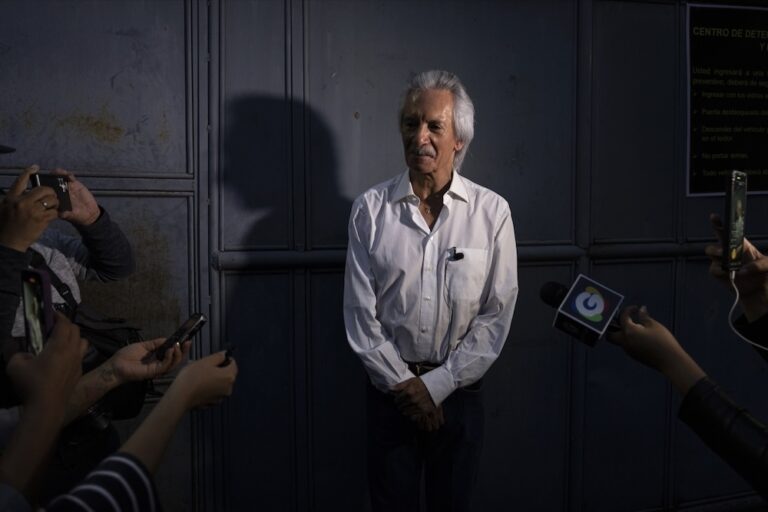Initial investigations reveal that journalist Carlos Alberto Orellana Chávez was kidnapped and later killed. He was shot in the head.
Guatemalan radio host and journalist Carlos Alberto Orellana Chávez, 66, was found dead on 19 August 2013 in Villa Linda, San Bernardino, in the Suchitepéquez department, southwest of Guatemala City. Initial investigations reveal that the journalist was kidnapped and later killed. He was shot in the head.
Orellana Chávez was director of Radio Victoria La Venadita for 25 years and most recently hosted “Noticias Más” on Óptimo 23, a cable TV station. From 2000 to 2004 he was also the mayor of Mazatenango.
So far in 2013 there have been four murders of journalists and media workers in Guatemala. The first was on 20 March in Ciudad Pedro de Alvarado, Jutiapa, when an unidentified group of people killed Jaime Napoleón Jarquín Duarte on the street. He had worked for Nuestro Diario.
The second murder was also in Jutiapa, on 7 April, when the vicepresident on the Jutiapa Journalists Association, Luis Alberto Lemus Ruano, was killed. The third death was on 6 August in the capital of Zacapa department – radio host and journalist Luis de Jesús Lima was shot outside the La Sultana radio station.
Most recently, journalist Fredy Rodas was attacked on 12 August in Mazatenango, the same department where Orellana Chávez was killed. Rodas is recovering after sustaining five gunshot wounds. He has said he will leave the country because of the wave of violence against journalists.
Cerigua’s Journalists Observatory welcomed the capture of Marvin Cruz Ordóñez Carpizo, the suspect behind the attack on Rodas. However, the group considers statements made by Mauricio López Bonilla, the Minister of the Interior, suggesting that the recent attacks on journalists are of a personal nature, to be hasty. The investigations into the attacks and murders are not complete, but the minister suggested there is no connection to the journalists’ work.
Free expression groups are calling on the Guatemalan authorities, especially the public prosecutor, to make their investigations more in-depth so that the people behind these crimes can be identified and apprehended. It is very important that the people carrying out the investigations determine quickly whether or not the crimes are connected to these journalists’ work.
Cerigua’s Journalists Observatory has recorded 22 murders of journalists in Guatemala since 2003; eight took place during the Álvaro Colom administration (2008-2012) and four in 2013.


